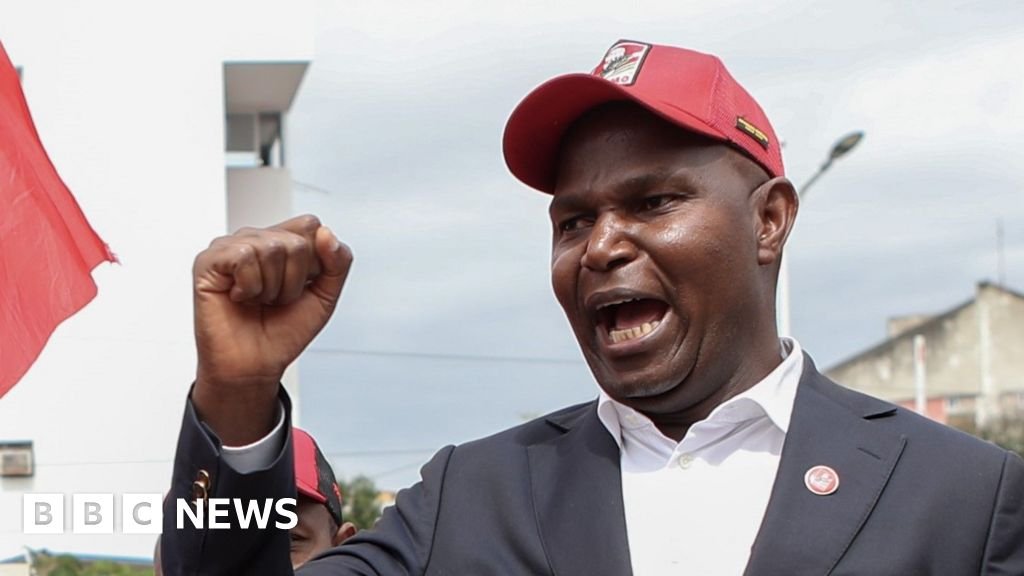The election was marred by allegations of fraud and the killing of opposition supporters, sparking protests across the country.
Zimbabwean President Mnangagwa, who has also been dogged by allegations of electoral fraud for years, prematurely congratulated Chapo on his “resounding victory” even before the results were announced.
Osufo Momade, a candidate from the former rebel group Renamo, which used to be the main opposition party, came in third with 6%.
Political scientist Thomas Vieira Mario told the BBC that Renamo had lost its “historic position” because Mamade failed to attract young voters in ’68.
The Electoral Commission reports that 43% of the more than 17 million registered voters took part in the elections.
Parliamentary and provincial elections were held simultaneously.
The election was seen as a turning point for the resource-rich country, which has been plagued by economic problems, corruption and poverty.
Main opposition candidate Mondlon called for a national strike on Thursday to protest the alleged fraud.
Mondlane has until December to contest the results.
He added that the protests would honor his lawyer and a party official who were shot dead last week in what he called politically motivated killings.
He claims to have won the election despite early polls showing Chapo well ahead.
On Monday, he organized nationwide protests that were dispersed by police with live ammunition and tear gas.
The election was also criticized by EU observers who said some results may have been rigged.
They stated about “violations in the counting of votes and unjustified change of election results”.
Political scientist Adrian Nuvunga has condemned what he called a scheme to rig the elections in Mozambique.
The Electoral Commission declined to comment on allegations of vote fraud, Reuters reports.
Chapo will be officially sworn in in January.

